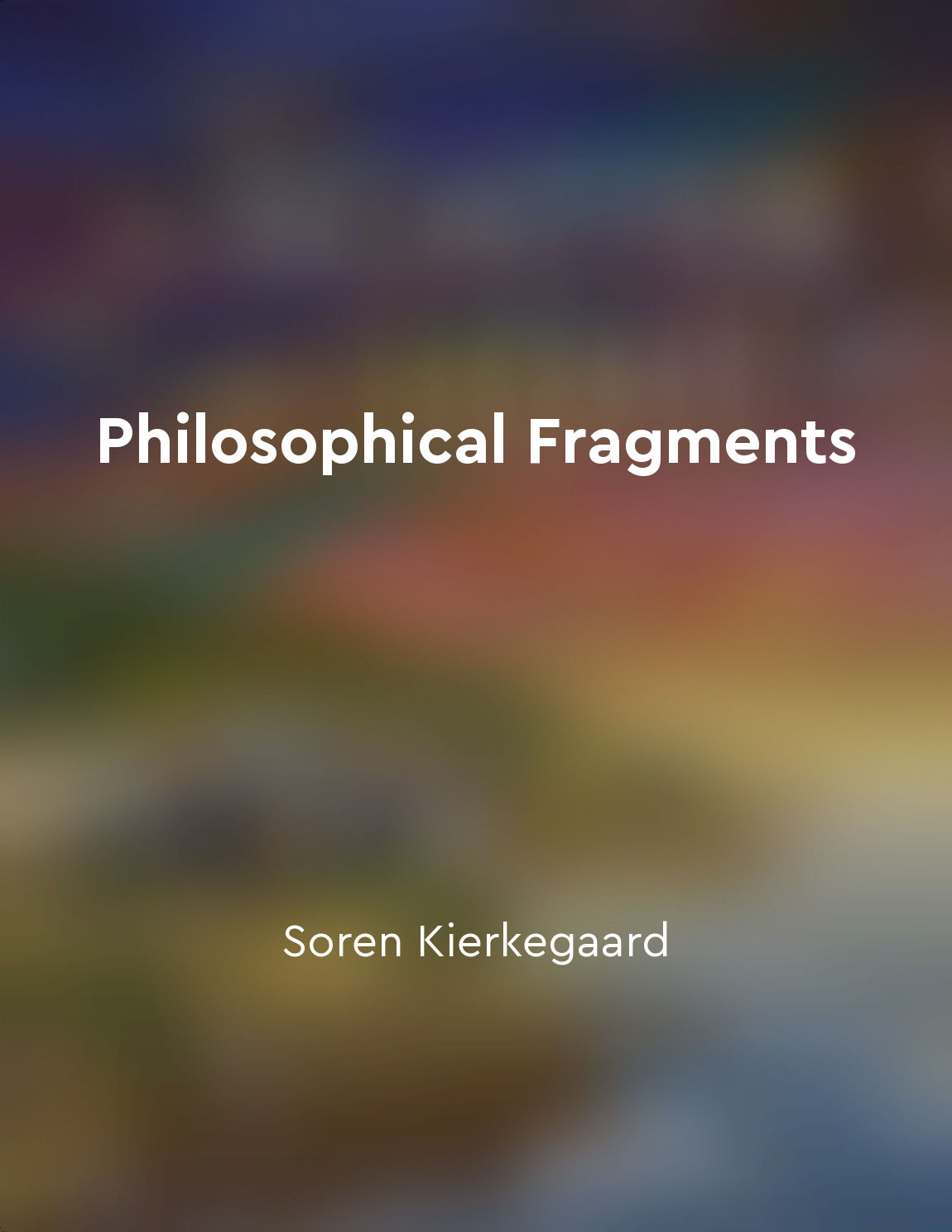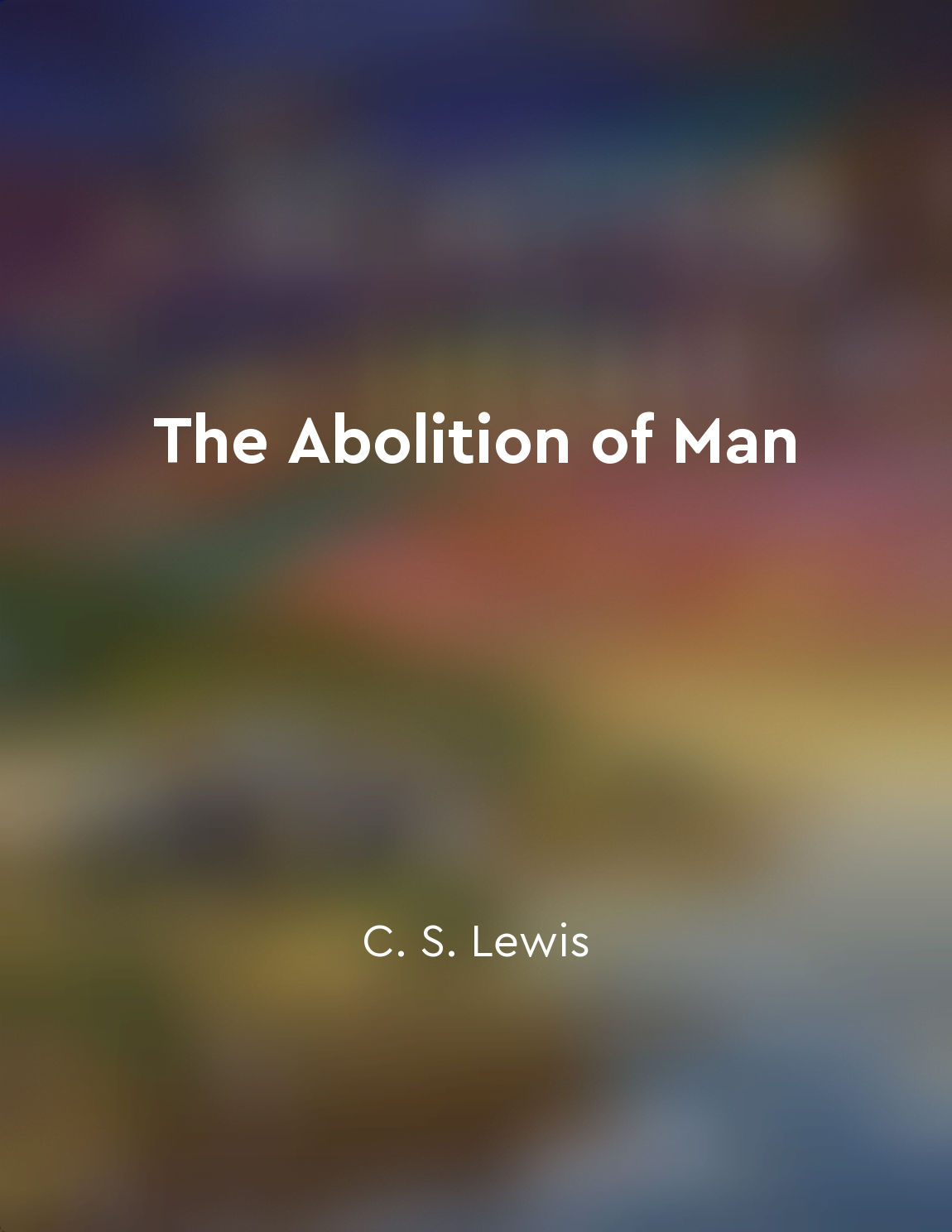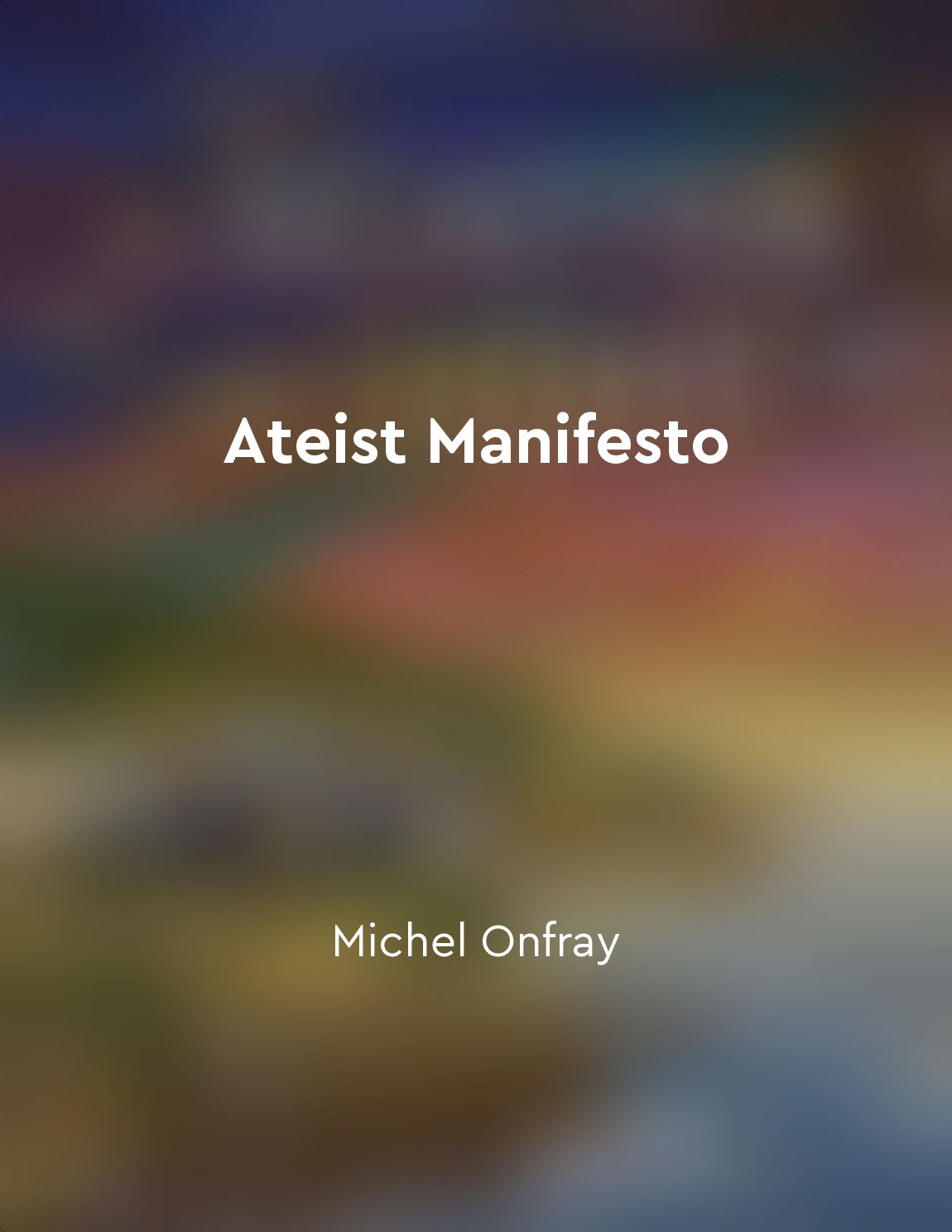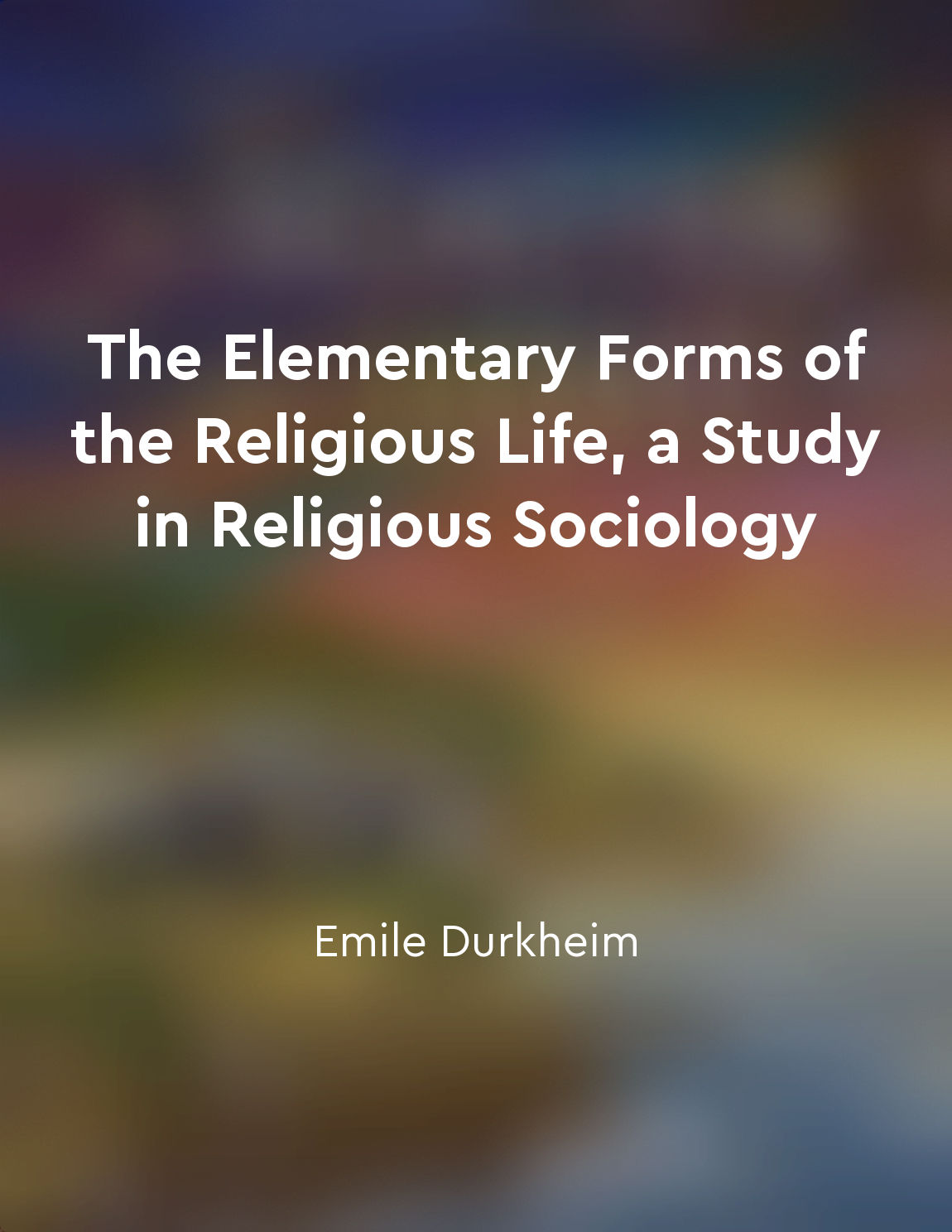Religion within the bounds of reason alone from "summary" of Immanuel Kant: Prolegomena to Any Future Metaphysics by Immanuel Kant
The idea of religion within the bounds of reason alone refers to the belief that religious doctrines and principles should be subject to rational scrutiny and analysis. This concept suggests that religious beliefs should not contradict reason or go beyond what can be known through reason. In other words, religious truths should be in harmony with our rational faculties and should not require blind faith or acceptance without evidence or justification. Immanuel Kant argues that reason is the ultimate authority when it comes to determining the validity of religious claims. He maintains ...Similar Posts
Transcendental analytic clarifies concepts
The Transcendental Analytic is instrumental in shedding light on the nature of concepts. It serves as a tool for understanding ...

The search for meaning in life demands a willingness to grapple with existential questions
The search for meaning in life is a profound journey that requires a deep willingness to engage with existential questions. It ...

The dangers of reducing humanity to mere objects
In the world we live in, there exists a grave danger, a danger that threatens the very essence of humanity itself. This danger ...
Custom and habit shape behavior
Human behavior is greatly influenced by custom and habit. These two factors hold immense power over our actions, shaping them i...

Religion's downfall is inevitable
The collapse of religion is certain because the world is evolving. Technology and education are increasing, opening minds and q...

It creates social cohesion and solidarity
Durkheim argues that religious beliefs and practices play a crucial role in creating social cohesion and solidarity within a so...
Human potential for selftransformation
The concept of human potential for self-transformation is a central theme in the work "Feuerbach - The Roots of the Socialist P...

The complexity of life can be explained by natural selection
The complexity of life, Dawkins argues, can be fully understood through the lens of natural selection. This theory, first propo...
Language diversity reflects societal history
Language diversity is not simply a random occurrence but rather a reflection of the history of societies. The languages spoken ...
Good will as the highest good
In the realm of morality, the concept of good will stands above all other considerations. Kant argues that good will is the onl...
